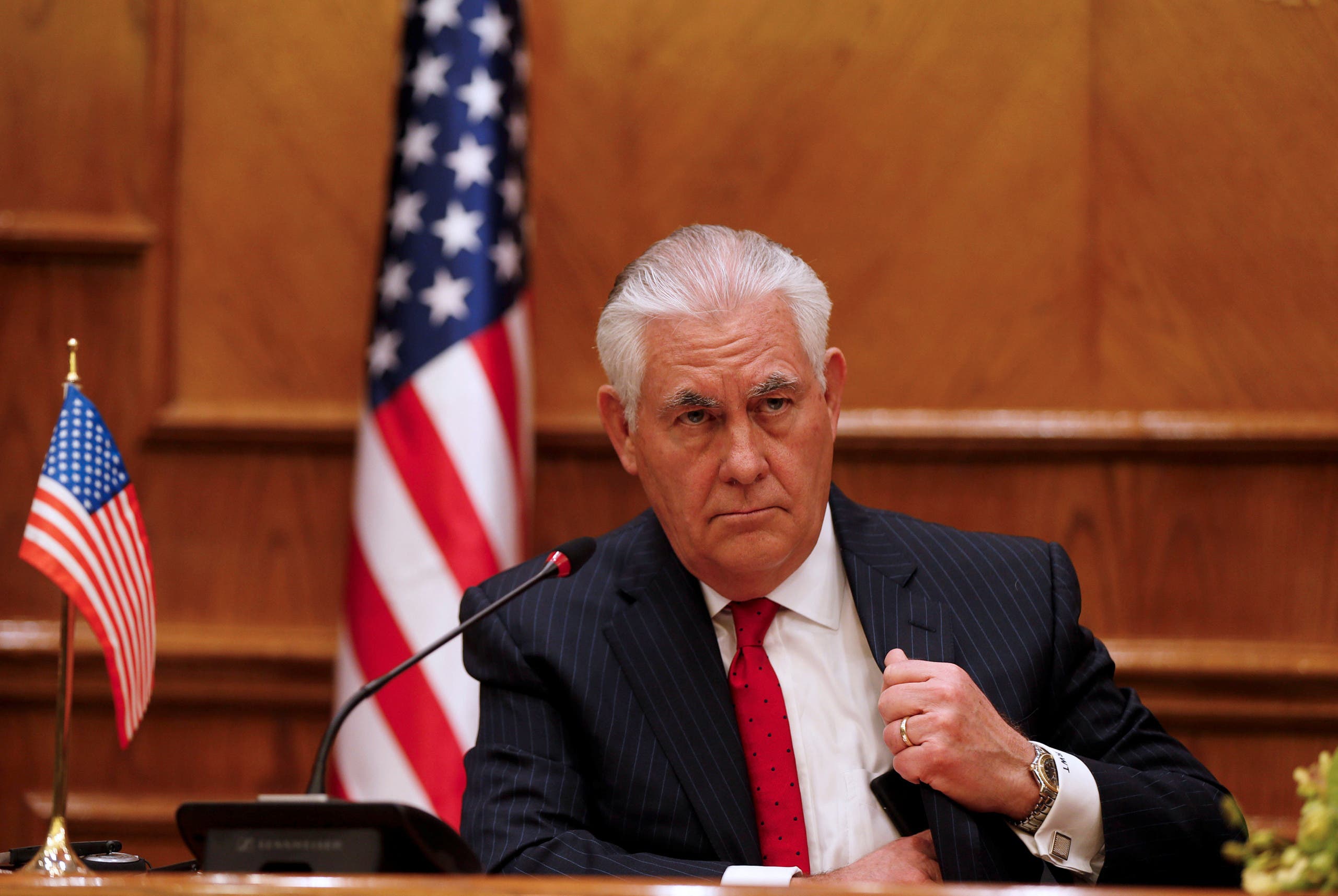The not so unexpected firing of US Secretary of State Rex Tillerson comes at a shock for Iran’s regime. US President Donald Trump is very precise about having differences of opinion.
“When you look at the Iran deal, I think it’s terrible,” Trump said. “I guess [Tillerson] thought it was okay. So we were not really thinking the same. With Mike, Mike Pompeo, we have a very similar thought process. I think it’s going to go very well.”
Most analysts now believe Trump will sack the JCPOA at the May 12th deadline, bringing about an utter catastrophe for Iran’s regime as officials scramble to contain an increasingly restive nation.
Uncertain future
While Tehran may attempt to save face by threatening to leave the Iran nuclear deal, known formally as the Joint Comprehensive Plan of Action (JCPOA), if Washington goes down this path, rest assured the mullahs’ regime have serious concerns regarding their uncertain future.
Iranian state TV cites the country’s top diplomat Mohammad Javad Zarif describing Trump as unpredictable and unreliable. The semi-officials Fars news agency, known for its affiliation to the Revolutionary Guards (IRGC), describes the JCPOA’s fate as “obscure more than ever before.”
“Pompeo is America’s JCPOA-exit agent,” writes the Tabnak website, affiliated to former IRGC chief Mohsen Rezai, said to be close to Iranian Supreme Leader Ali Khamenei. And there are doubts, to say the least, about the future as the regime faces a historical impasse.
‘Uncontrollable phase’
According to the Sharq daily, “These developments must be taken seriously. Measures are necessary to decrease tension with the US If the status quo continues, it may reach an uncontrollable phase.”
“Do the state’s senior decision makers have enough knowledge about this very sensitive matter, or will they continue the same policies of the past regarding differences between Iran and the West?” asks Bahardaily.
The question now is if Tehran had provided positively during the visit of French Foreign Minister Jean-Yves Le Drian, would Tillerson still be set aside? Certain is the fact that prior to his sacking Tillerson was in Europe’s camp, believing they were able to compel Tehran to significantly curb its ballistic missile program and Middle East meddling, in return for keeping the JCPOA intact.
French President Emmanuelle Macron, seen as representing Europe on the JCPOA, could also be considered onboard with this roadmap. This was most likely Le Drian’s message to Tehran, even warning beforehand more sanctions are coming – meaning the end of the JCPOA and its consequences – if Tehran refused his proposed talks.
One immediate sign of sanctions is the recent Resolution 4744 adopted by the US House of Representatives targeting Iran’s human rights violations.

No more opportunities
We can now assume the first impact of Tehran’s negative response to Le Drian is the failure of Tillerson and his viewpoint. It is only natural that such a setback paves the path to his exit. It is safe to say those in Trump’s camp from day one in their position against the JCPOA now have the upper hand.
The question now is with the doomed fate of the JCPOA nearly certain, will Tehran decide to stand firm on its position? This deadlock will unquestionably result in even further dilemmas for Iran, meaning no more opportunities to kick the can down the road.
For starters, this is a message for Khamenei to brace for harsh times ahead and increasing international isolation. While sanctions may be the first step, Tehran understands the fact that sweeping changes in the Trump administration spell measures of more drastic proportions.
Increasing demands
Can Tehran tolerate trekking into such an intolerable path? Logically no. On the other hand, however, Iran knows the West’s demands are likely to increase significantly regarding its ballistic missile ambitions and Middle East influence.
Tehran lost the chance of gaining any meaningful incentives by sending Le Drian back empty-handed. It is highly probable that Washington, now with Europe on its side completely, will be placing far more expensive demands before Tehran.
It is in such circumstances that we witness Khamenei admitting his regime is facing “a difficult struggle and war, politically, economically, socially, culturally and security wise.” These remarks came in a recent meeting with members of Iran’s Assembly of Experts. Khamenei is ill with cancer and this body has the authority to select his successor.
‘Chalice of poison’
This lower’s Tehran’s position in the delicate balance of power against the Iranian people’s ongoing protests. More defections and deepening rifts are very likely. In finally succumbing to a ceasefire agreement ending the 1980-88 Iran-Iraq War, Khamenei’s predecessor Ayatollah Khomeini said he is drinking from a “chalice of poison.”
Khamenei is now facing numerous such hurdles. Iran curbing its ballistic missile program and Middle East malevolence will most likely result in the West stating demands on its human rights dossier. And with Iran’s protests gaining momentum, there is no light at the end of this tunnel for Khamenei and his regime.
Leave a Reply